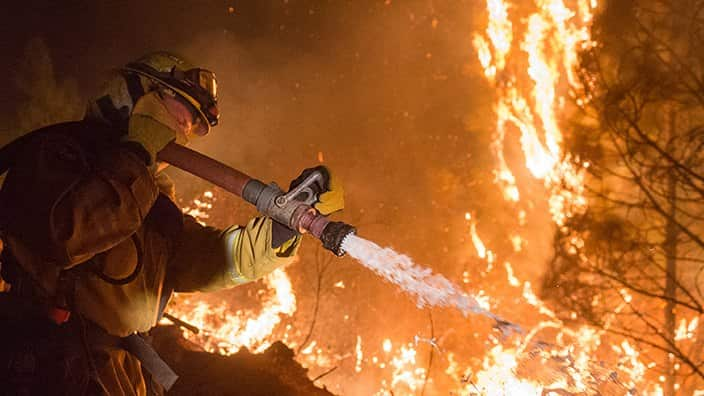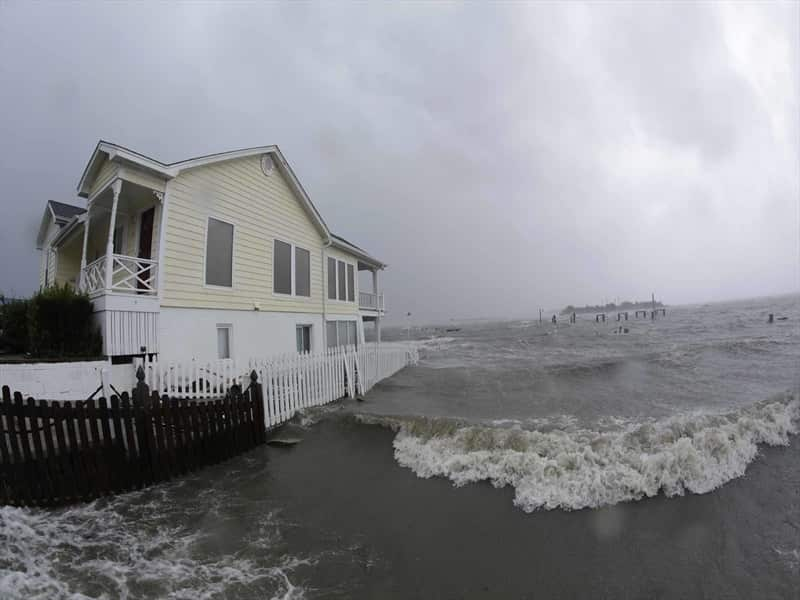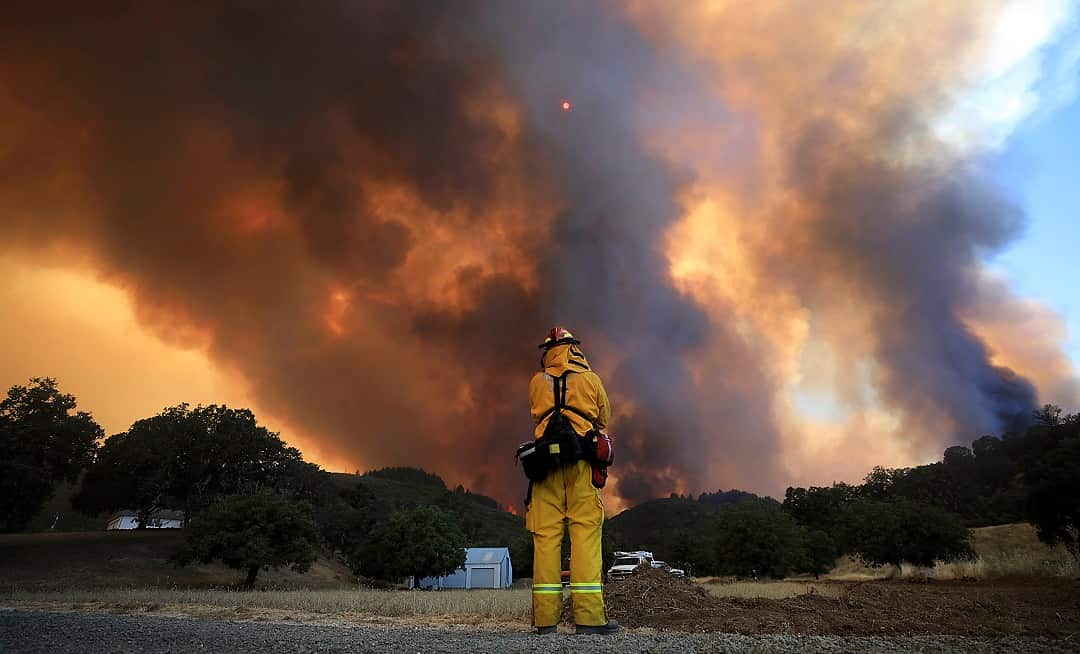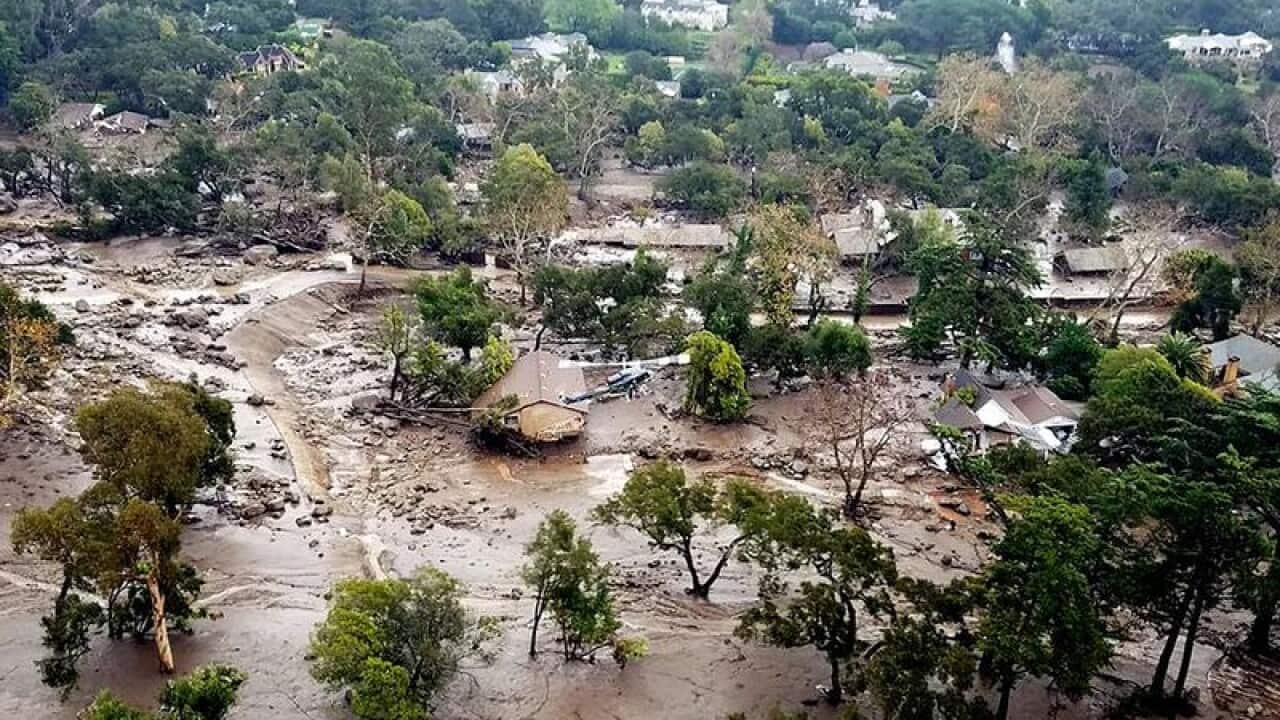As California's catastrophic wildfires recede and people rebuild after two hurricanes, a massive new federal report warns that these types of extreme weather disasters are worsening in the United States because of global warming.
The White House report quietly issued on Friday also frequently contradicts President Donald Trump.
The National Climate Assessment was written long before the deadly fires in California this month and Hurricanes Florence and Michael raked the East Coast and Florida. It says warming-charged extremes "have already become more frequent, intense, widespread or of long duration".

A firefighter battles flames in California earlier this month. Source: AAP
The federal report says the last few years have smashed records for damaging weather in the US, costing nearly $US400 billion ($A553 billion) since 2015.
"Warmer and drier conditions have contributed to an increase in large forest fires in the western United States and interior Alaska," according to the report.
"We are seeing the things we said would be happening, happen now in real life," said report co-author Katharine Hayhoe of Texas Tech University. "As a climate scientist it is almost surreal."
Report co-author Donald Wuebbles, a University of Illinois climate scientist, said things will just get worse from here.
"We're going to continue to see severe weather events get stronger and more intense."
The air pollution from wildfires combined with heat waves is a major future health risk for the west, the report says. During the fires in northern California, air quality hit "hazardous" levels, according to government air monitoring agencies.
"There's real concern about how the west will be able to manage this increasing occurrence," said report co-author Kristie Ebi, a University of Washington public health professor. She said global warming is already harming people's health, but it will only get worse.

Hurricane Florence battered North Carolina with wild winds and a powerful storm surge. Source: AAP
The report is mandated by law every few years and is based on hundreds of previously research studies. It details how global warming from the burning of coal, oil and gas is hurting each region of the US and how it impacts different sectors of the economy, including energy and agriculture.
"Climate change is transforming where and how we live and presents growing challenges to human health and quality of life, the economy, and the natural systems that support us," the report says.
That includes worsening air pollution causing heart and lung problems, more diseases from insects, the potential for a jump in deaths during heat waves, and nastier allergies.
What makes the report different from others is that it focuses on the US, then goes more local and granular.

A tower of smoke pours from Cow Mountain as firefighter Bob May keeps a watch for spot fires. Source: AAP
By the end of the century, the US will be 1.6 to 6.6C hotter depending on how much greenhouse gases are released into the atmosphere, the report warns.
The report often clashes with the president's past statements and tweets on the legitimacy of climate change science, how much of it is caused by humans, how cyclical it is and what's causing increases in recent wildfires.
Trump tweeted this week about the cold weather hitting the East including: "Brutal and Extended Cold Blast could shatter ALL RECORDS - Whatever happened to Global Warming?"
Friday's report seemed to anticipate such comments, saying: "Over shorter timescales and smaller geographic regions, the influence of natural variability can be larger than the influence of human activity ... Over climate timescales of multiple decades, however, global temperature continues to steadily increase."

